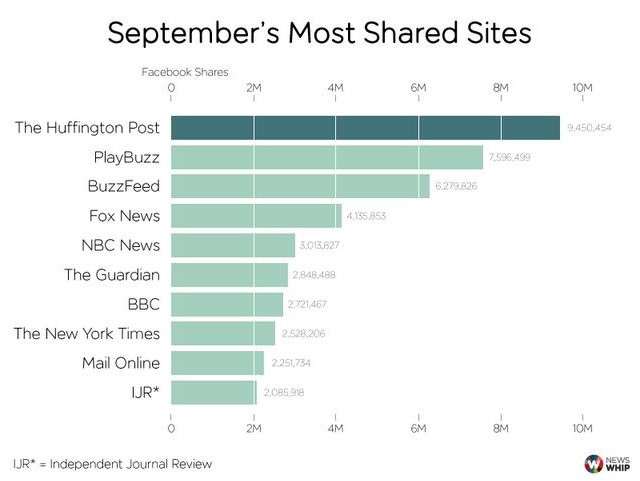Cash and Anxiety on the Weird New Internet

Welcome to ᴄᴏɴᴛᴇɴᴛ ᴡᴀʀs, an occasional column intended to keep a majority of ᴄᴏɴᴛᴇɴᴛ coverage in one easily avoidable place.
Here is something that is not quite missing but also not all the way present in stories about Fusion’s all-star hiring spree: The money. It is not yet clear, from the outside, what Fusion is planning on doing with all its new hires, but they’re getting very good people: Anna Holmes, Dodai Stewart, Felix Salmon, Jane Spencer. Yesterday The Atlantic’s Alexis Madrigal announced that he too would be joining. Madrigal in 2013:
I am an Atlantic person. I love this place. I feel it in my bones. If I open up one of our musty tomes at the office, I can get sucked in for an hour just looking at the ads, or marveling at the eloquence of W.E.B. DuBois. When I look back at old Ta-Nehisi posts or see Fallows in the halls, I can get emotional.
Here is what I understand about the Fusion proposition: Fusion has money. TV money. This money affords its web operation editorial freedom and the ability to ignore the most exhausting parts of the internet (see: Felix Salmon’s Actual Auction Price Calculator), which is huge. Of course this money also affords new hires money, and a chance to work onscreen: The Fusion job discussions I’ve heard about put its offers in an entirely different ballpark than most of its “competitors,” except maybe Bloomberg, which will throw huge amounts of cash at the people it wants.
Anyway, this is great: Talented people get to pay off debt and do work they want. And because of the contrast it creates with the companies more commonly associated with the internet publishing boom. Big internet publishers pay well on their scale, and on modern print scales. But nothing like this.

Every month, a company called NewsWhip releases a whole bunch of reports tracking which ᴄᴏɴᴛᴇɴᴛ is performing the best on social media; every month, people cherry-pick the Facebook report for data that is either helpful or not-depressing. Here are September’s top publishers on Facebook:

It is possible to look at these and feel OK. Most of these sites are either big news operations growing viral and entertainment arms or big viral and entertainment operations growing news arms. “These are diversified companies doing lots of different things, and it’s working on Facebook, which is good,” you might conclude, generously. Now here’s one from June:

Every month there are hints. Irregularities. Questions? For example, what is a PlayBuzz? (In its current form: An ENORMOUS quiz factory. In June? Who knows, it changes a lot). The Independent Journal Review, which is asterisked in every report that includes it because MEDIA PROFESSIONALS have no idea what it is, is a sort of uncanny conservative Upworthy. One of its recent hits:
Female Fighter Pilot Becomes First to Say: ‘Hey ISIS, You Were Bombed by a Woman, Have a Nice Day
Which you can Google if you want, but which contains this Pinterest-ready graphic:

So you see these charts, and you give the internet the benefit of the doubt, but you also wonder. Something seems off. Then you see the most-shared story list:

1. Quiz
2. Thing that is basically false, by a site owned by IBT Media that hosts stories with headlines like “10 Latinas Who’ve Definitely Had Plastic Surgery,” which, unlike most stories on the site, does not carry a byline
3. Quiz
4. Quiz
5. Quiz
6. Quiz
7. A death hoax from a site that is comprised ENTIRELY of fake stories and “satire” intended to be shared by people who don’t realize that it’s satire.
8. Quiz
9. EliteDaily 🙁
10. Quiz
Now, the list for August:

Ice bucket, ice bucket, ISIS. Not a single quiz. What can Publishers Learn From This? A literal interpretation: SUBLIMATE YOUR IDENTITY ENTIRELY, EVERY MONTH, because nothing else works, and the next PlayBuzz or Viral Nova could appear tomorrow and just totally house you out of nowhere.
Another thing you notice if you check in on these reports month to month — which is something that managers at most big media companies do! — is that the share pool isn’t growing that much. The water is rising, yes, but the most-shared site in both June and September, the Huffington Post, stayed steady about about nine million shares. Second place traded but stayed at about seven. Then quickly down to the twos, with a lower threshold of almost exactly two million.
Yet the types of content change every month, not just in subject but in form. This might suggest that some of these formats are less durable than others: If a particular type of share-friendly post worked in June, or July, then why wouldn’t it work in September? Again, this isn’t about changing subjects, but changing containers: Upworthy has been posting similar types of videos for the last two years but its headline templates — or rather, headlines that have tested well — have shifted noticeably.
It’s hard to believe that this is just refinement. One possible explanation: Novel formats fall as quickly as they rise, especially if they contain little of value. Or if they’re just new ways to cry wolf.

Here is a story called “How The New Yorker Finally Figured Out The Internet: 3 Lessons From Its Web Redesign.” The story notes that traffic is “up 23% from a year ago” and says “[s]ince the July relaunch, traffic on NewYorker.com is averaging 10.4 million monthly uniques.” Now, here is a story from May of last year: “April was the best traffic month ever for NewYorker.com, with 10.7 million unique monthly visitors.” Mmmm. Even if you focus on the 23% claim, why not just credit that to the site’s newly opened archives? This piece also seems to overstate the number of posts the site publishes each day.
Anyway: Andy Borowitz.

My labor of love the last two years has been The Magazine, first as its hired hand and then, in May 2013, as its owner. The sad truth has been that, while profitable from week one, the publication has had a declining subscription base since February 2013. It started at such a high level that we could handle a decline for a long time, but despite every effort — including our first-year anthology crowdfunded a bit under a year ago — we couldn’t replace departing subscribers with new ones fast enough. We’re a general-interest magazine that appeals to people who like technology, and that makes it very hard to market. “Pivoting” to a different editorial focus would have lost subscribers even faster.
Long story short: “Our last subscription issue will be December 17, 2014, after which we will discontinue and refund subscription on a pro-rated basis and may produce some ebooks or special projects thereafter.”

Some more local Facebook news: For the last few weeks, Alex Balk’s five-year-old “How To Cook A Fucking Steak” post has been hovering near the top of our live stats. We have a few posts that surge like that from time to time, and Steak is one of them, but this is different: Facebook seems to have… found it. Yesterday we had a handful of stories that were doing “well” by our standards, but that were all less popular than Steak. We don’t know WHERE on Facebook Steak resurfaced, or why — some horrible Thug Kitchen effect? — but it just keeps on going. To be clear: We are glad that more people are interested in learning How To Cook a Fucking Steak. But this will end at some point which we cannot predict and, in retrospect, will not be able to explain. And then it will happen again. Drink!
